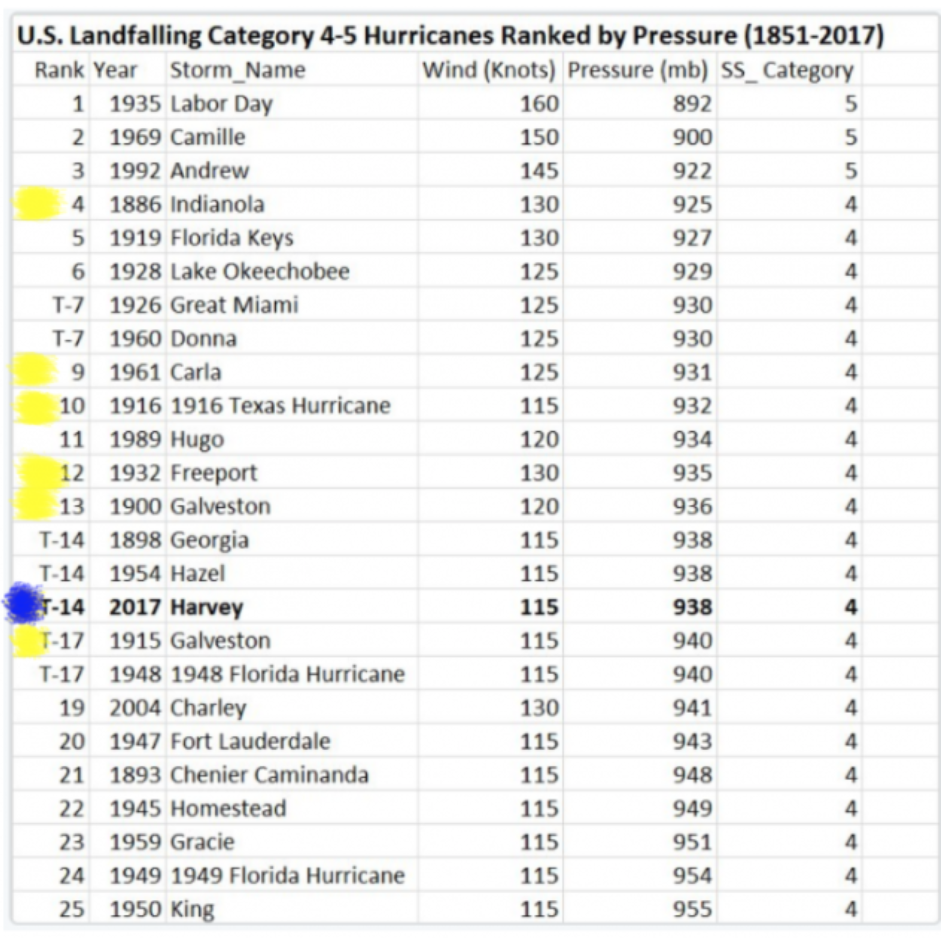A few political hacks masquerading as scientists released a paper on 23rd April called “Hurricane Harvey: Links to Ocean Heat Content and Climate Change Adaptation.” You can find the paper at the American Geophysical Union with the breathless headline “Record Breaking Ocean Heat Fuelled Hurricane Harvey.”
One of the authors of this travesty is Keith “Travesty” Trenberth, so called by James Delingpole, who notes that Keith was one of the inner circle whose manipulations of data were exposed in the release of the climategate emails, amongst which was found this gem:
The fact is that we can’t account for the lack of warming at the moment and it is a travesty that we can’t.
(Hence his nickname Kevin ‘Travesty’ Trenberth. The real travesty of that email, of course, is that what he’s shown clearly doing there is not science but politics. A scientist would see the “missing heat” issue not as a “travesty” but as an opportunity to reassess the now-falsified models in the light of new evidence.)
In fact Hurricane Harvey had nothing to with changes in global temperature, and the moderate and entirely natural changes in climate over the last century have not made weather more extreme.

No increase in hurricane intensity over the twentieth century
As Joe Bastardi notes:
Hurricane Harvey is tied for 14th. Look at the storm above it, Hazel. Now, let me ask you: Which is the more extreme as far as deviation from normal with pressure, which is a good metric to objectively evaluate how extreme a tropical cyclone is — a storm that hit in mid-October in North Carolina, or one that hit the central Texas coast in late August? Let’s also look at Harvey in relation to other hurricanes in Texas. Behind it is the 1915 Galveston hurricane. That is the lesser of the two evils, because the 13th right above Harvey is the 1900 Galveston hurricane that killed 6,000-12,000 people. And right above that one is the Freeport hurricane of 1932. Notice when these are occurring. Then there is the 1916 cyclone in Texas — just a year after the 1915 Galveston hurricane — and Carla in 1961. Again, this all occurred over 50 years ago. Then there is the 1886 Indianola hurricane. They are all hitting in the area that Harvey hit. So the question becomes, if those same storms, almost all stronger, from many years ago hit today, would they be a sign of climate change? Why is Harvey — and not to downplay the storm, but it was one of many and less intense than most — a sign the climate is changing, but these other storms would not be?





